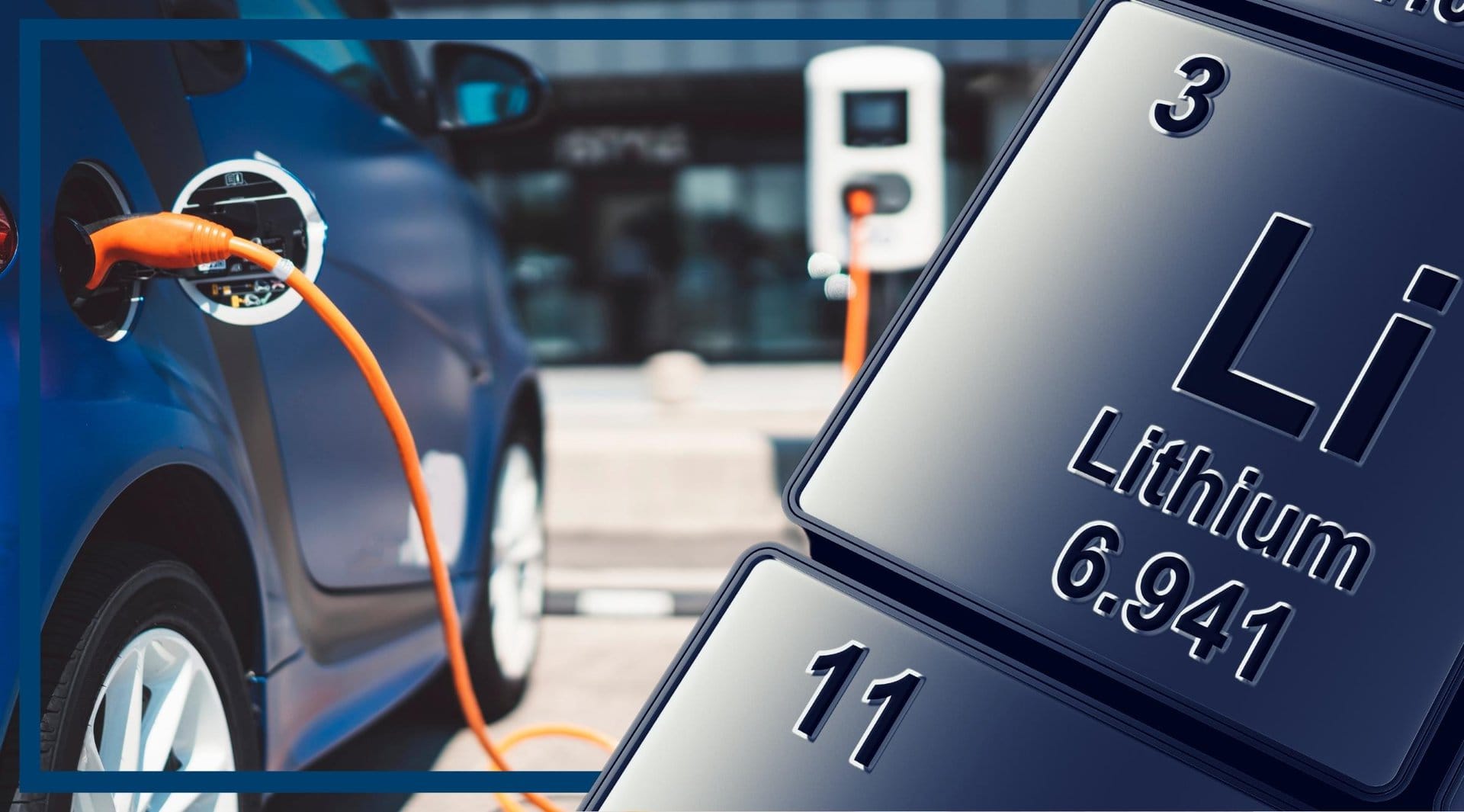By David Whitehouse
Governments in the UK and Europe must accept and act on the fact that mass electric car adoption can’t be achieved without more global lithium mining.
Lithium is needed for the batteries in electric vehicles, mobile phones, and laptops, as well as for energy-storage applications. Prices have surged this year and look set to remain high. Fitch Solutions forecasts that Chinese lithium carbonate will average US$68,000 per tonne in 2022 and US$55,000 in 2023, versus US$18,938 in 2021.
There is no absolute scarcity of lithium and there are global resources available, but mining permits and financing take time, says Anton du Plessis, CEO of Zinnwald Lithium in London. “You can’t just wish for production to come on. We are looking at a longish period of supply shortage.”
Lack of resources and expertise in mine permitting departments has been an obstacle, sometimes compounded by different authorities competing for jurisdiction over a project, du Plessis says. The problem is global and the process in Europe and the UK is “relatively arduous.” Clarifying and simplifying permitting processes would be “extremely helpful.” Government incentives have not yet been extended to the raw material supply chain, but have a role to play, he adds.
Europe currently lacks a domestic lithium producer. Du Plessis is currently trying to get a project near Dresden in Germany through the permitting process. The plan is for an integrated project where lithium processing also takes place. Depending on permitting, Zinnwald aims to start production in 2026-27.
Though the planned operations are in the European Union, Zinnwald is listed on London’s Alternative Investment Market (AIM). Du Plessis sees no prospect of a drift away from London as a financing centre for the mining industry in the wake of Brexit. A “critical mass” of understanding of an industry is needed within a market and London “understands early-stage mining,” he says. The company will need further financing to get it into production, Du Plessis says. He would in future be willing to consider the possibility of a secondary listing.
The Poor Cousin
About 8 kilograms of lithium are needed for batteries in every electric car. Fitch says that battery manufacturing location will drive future geographical demand. China is the largest battery manufacturer with about 80% of installed manufacturing capacity. Other manufacturers including Japan, South Korea, the US, and Hungary are set to increase operations, while new entrants such as Germany, Poland, Sweden, France, the UK, Thailand, and Indonesia will seek to establish themselves, Fitch says.
Currently only about 35% of China’s lithium is for domestic use, but by 2025 China will need to keep all of its lithium supply, says Sean Sargent, CEO of Green Lithium in Bristol. Europe and North America therefore risk “being left out in the cold to some extent,” Sargent says.
Sargent points to the US Inflation Reduction Act, which gives tax incentives to supply the minerals needed for electric cars. The UK, by contrast, is “one of the least incentivised countries in the world,” Sargent says. “Europe is not as good as the rest of the world” in providing incentives, and “the UK is the poor cousin in Europe.” Nickel, cobalt, manganese, and rare earths are needed as well as lithium, Sargent says. “Some form of incentivisation would be the way to go about it.”
New mines planned in Canada, Latin America, and sub-Saharan Africa mean that pressure on lithium supplies will ease in a few years. But unless the problem of low-carbon processing of lithium is solved, the benefits of switching from fossil-fuel cars will be “greatly reduced,” Sargent says. He sees a danger that EU vehicle manufacturers will react to the interim shortage by sourcing minerals from wherever they can and, in doing so, leave a higher carbon footprint. “As demand for these minerals goes up, the market may not respond in the greenest way.”
Green Lithium is aiming to commission a refinery in northeast England in the fourth quarter of 2025, the location of which is yet to be announced. The government has provided support through the Automotive Transformation Fund, Sargent says. But that, he says, does nothing to resolve the critical minerals supply issue. The next five years are crucial in terms of investment. “If Europe and the UK are serious about developing twenty-first century industries, they need to help them secure critical minerals.”
Steamships With Sails
The investment process for the switchover for electric vehicles works backwards as it is led by governments rather than the consumer, says Andrew Leyland, founder of SC Insights consultancy in London. Yet the electric car transition tends to ignore the extractive processes involved, Leyland says. “We don’t want to admit that it has to be dug out of the ground.”
This air of unreality extends to parts of Britain’s higher education system. Birkbeck College, which is a part of London University, recently banned co-operation with potential mining employers of its students on environmental grounds. The move was part of a wider ban on co-operation for oil and gas industry careers by the college.
Lithium, Leyland points out, does not have an established market with liquid futures exchanges, or even above-ground stocks. Although in the long term there is no geological shortage, there is no clear way for the price mechanism to operate to solve the fact that the mineral can’t be made available as fast as we want it, he says. According to Fitch Ratings, there has been no open interest on lithium hydroxide futures contracts launched by the Chicago Mercantile Exchange and London Metals Exchange in an attempt to let firms hedge against price volatility. Manufacturers, according to Fitch, “saw little value in buying futures contracts when there was little confidence future supply would be there to deliver.”
The result is that, at least in the short term, electric vehicle production will be constrained, Leyland says. Current lithium prices are about $70,000 per tonne. Even $20,000 would be enough to ensure project profitability, Leyland says. The surge in lithium prices has added about $2,500 to the price of even a modest electric car, he says. Shortages of lithium, he says, are so acute that carmakers are going out and buying material directly themselves rather than waiting for the market to deliver it. That has echoes of the 1950s, when rubber was the missing ingredient, Leyland says.
The refining of lithium also poses risks, with capacity currently dominated by China. Mineral supply, Leyland says, is the more pressing issue. “There’s no point building a refinery unless you have something to put through it.” Rystad Energy has estimated that the global known lithium mine capacity is about 25% short of the 2025 world processing capacity of lithium carbonate and hydroxide.
In Europe, Leyland says, “there’s a realisation governments need to do more” to encourage projects. Leyland points to biodiversity requirements in the US and Europe as among the obstacles: biodiversity requirements mean that the existence of rare types of flowers or snails have slowed projects down, he says.
The danger, Leyland says, is that lithium shortages will mean more hybrid vehicles combining an internal combustion engine with a small battery. He likens such vehicles to the early nineteenth steamships which still had sails. Today’s hybrids may cause slightly less pollution than a pure fossil-fuel car, but don’t represent a long-term solution, Leyland says. The danger, he argues, is that lack of lithium will mean that hybrid cars will continue to be produced for longer than governments intend.
David Whitehouse is a freelance journalist in Paris.
Author: David Whitehouse















